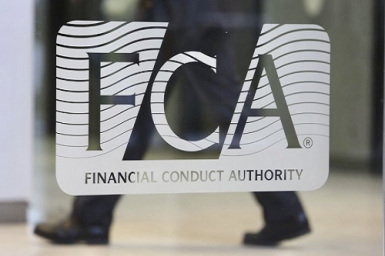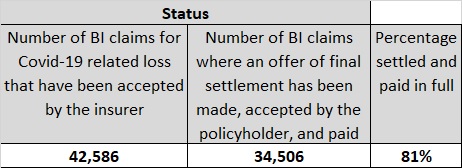
FCA publishes review of business interruption insurance claims handling
A Financial Conduct Authority (FCA) review of business interruption claims handling has welcomed insurers quickly paying out interim payments, reallocating resources quickly and proactively communicating with policyholders to help them with claims following the test case judgment handed down by the Supreme Court last year.
However, the FCA has raised concerns over how firms handled claims from vulnerable customers, record-keeping of policy wordings, and identifying where customers experienced unnecessary delays.
The FCA has set out examples of good practice and where insurance firms have fallen short of expectations in their handling of business interruption (BI) claims.
These key findings have been published to assist firms in their approach to handling all claims to ensure customers are treated fairly throughout the insurance claims process.
Sheldon Mills, Executive Director of Consumers and Competition, said:
'We have been working alongside insurers to ensure that claims are settled quickly, but we are not complacent, and today’s report is clear that, while we have observed good practice, there are lessons to be learned for the handling of all claims.
'As consumers and businesses across the country are affected by inflationary pressures and the rising cost of living, it is crucial that insurers are handling claims promptly and treating customer fairly.'
The news comes as the latest business interruption insurance claims data (DOWNLOAD HERE) shows that £1.5 billion has now been paid out by insurers to over 36,000 small businesses as a direct result of the test case.

The review identified good practice by insurance firms, putting customers at the heart of the claims process. This included:
- Firms were quick to move resources to priority business areas and employed technical external expertise where necessary
- Interim payments were issued using basic information received from policy holders, with more detailed assessments of further information to determine full and final settlements
- A range of channels were made available for customers to contact firms, such as greater telephone access and web-based forms
- Firms issued proactive communications encouraging policyholders to provide information to progress their claims
However, the review also identified key areas where firms did not meet FCA expectations regarding fair treatment of customers. This included:
- Firms and their partners did not produce clear and robust conduct Management Information, which affected their ability to identify and address delays in the claims process
- Some firms did not have records of policy wordings that were easily accessible for claims handlers, which resulted in delays for customers
- Firms did not adequately identify vulnerable customers or took an inconsistent approach in dealing with the needs of vulnerable customers
- Quality Assurance reviews were too focused on the financial outcome of the claim rather than the full customer experience and failed to identify where customer experienced unreasonable delays
- Customer communications were not always tailored to the recipient
Claims handling is a key part of the customer experience with insurers, and the FCA will consider, where necessary, all regulatory powers available to address the issues identified.
The New Consumer Duty stipulates that firms must support their customer throughout the entire lifecycle of a product, including the through the claims handling process.
The FCA expects Senior Managers to ensure customers are at the centre of the claims process and encourages firms to review their procedures to make sure they mitigate the risk of customer harm.

